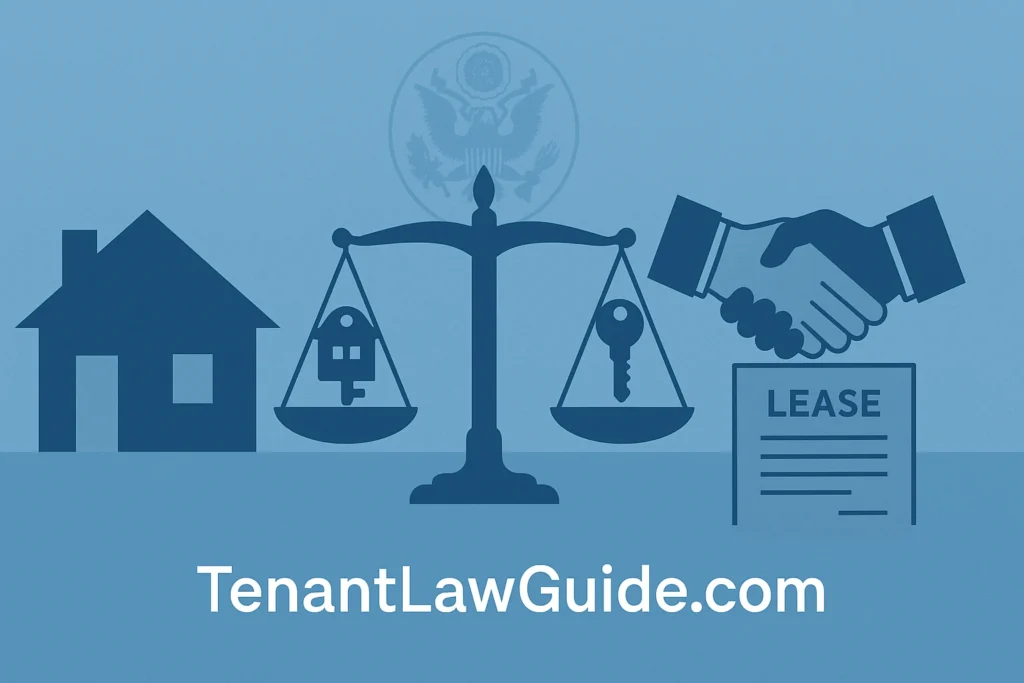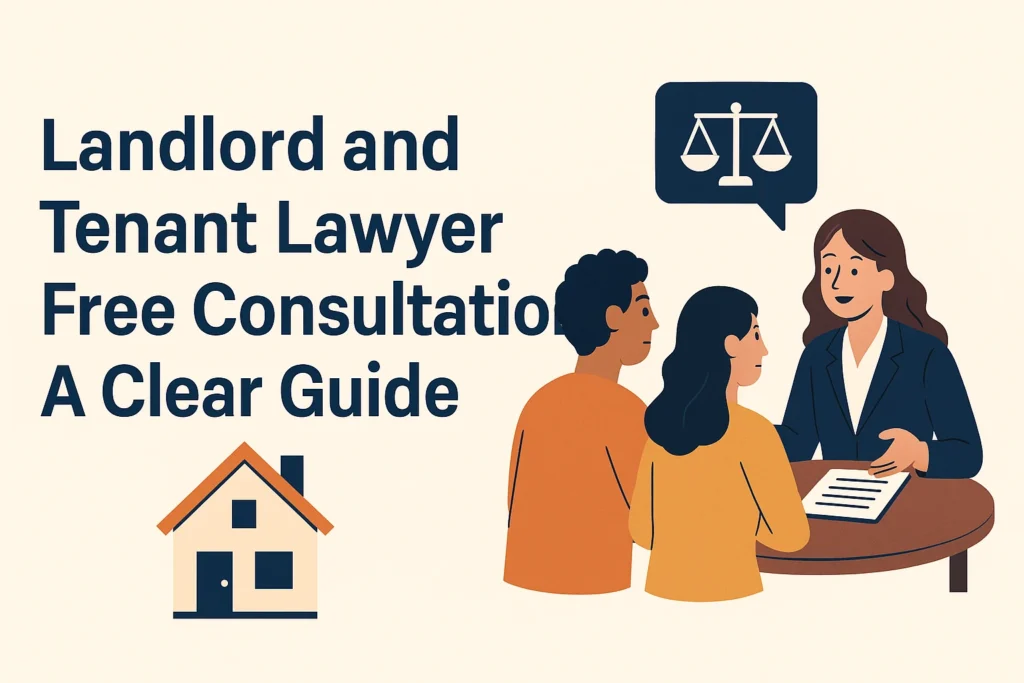Rental trouble turns calm life into chaos. Tenants in the United States meet unfair rent hikes, unsafe homes, or sudden removal notices. Landlords face risk when tenants refuse payment or damage units. Stress spreads on both sides.
A landlord-tenant lawyer closes this gap. The lawyer knows federal rules and every state statute. Clear advice lifts fear and confusion. Early help guards homes, income, and peace of mind.
Many tenants search the web for quick forms. Online tips help yet do not match real counsel. One wrong date on a court file can cost a home. Owners also lose time and cash if a notice fails to comply with the strict code.
Rental law shifts fast across states and cities. New rent boards, shorter notice days, and extra aid programs appear each year. A skilled lawyer tracks each change and acts before harm hits. Swift guidance turns large fights into short talks and saves both sides time and money.
Nearly half of U.S. renter households spend over thirty percent of their income on rent, says the National Low Income Housing Coalition. Such tight budgets cannot handle surprise legal costs. Proper counsel stops abuse, shapes fair leases, and shields cash flow. Balanced action keeps the rental market stable and just.
Role of a Landlord Tenant Lawyer
A landlord-tenant lawyer explains the lease in plain terms. Many tenants sign without a full review. Hidden clauses on repairs, pets, or late fees cause later shock. Legal counsel walks through each clause and highlights risk. This clear review arms tenants with facts before they agree. Landlords also ask counsel to draft firm leases. Strong terms set clear duties and reduce later fights.
Court time shows the true value of expert aid. Eviction suits move fast. A tenant may face a five-day answer limit. A lawyer crafts a solid reply and raises all defenses. Landlords gain speed through fault-free files. Courts respect clear pleadings and valid proof. Lawyers gather photos, text messages, and witness notes. Good evidence wins rent claims, repair orders, or deposit returns.
A landlord-tenant lawyer also stands as a skilled negotiator. Judges often urge parties to settle. A lawyer knows fair terms and can press for them. Tenants may trade a quick move-out date for rent relief. Landlords may grant repair credits to keep a solid renter. Settlements free dockets and save court costs. Legal counsel shapes these deals and writes clear settlement papers.
Modern rental tech adds new risk areas. Online rent portals, smart locks, and digital notices raise data privacy and security concerns. A landlord-tenant lawyer reviews new tools and drafts clear use clauses. This foresight prevents data leaks and lockouts due to tech faults. Counsel also guides owners on fair access rules for digital keys to ensure tenants keep control of their homes.
Tenant Rights and Legal Protection
Tenants hold the right to a safe home. Health codes mandate heat, water, and a sound structure. When an owner fails, a tenant may halt rent or sue. A landlord-tenant lawyer files habitability suits that seek repair orders and rent cuts. Courts can also award hotel bills when a unit turns unsafe. In some states, triple damages punish bad-faith neglect.
Security deposits spark many fights. State law caps sums and forces a quick return once a tenant leaves. Owners must send a clear list of deductions. A lawyer pursues claims when owners miss deadlines or incur costs. Judges often add double the money and fees to push owners into fair practice. Deposit suits also warn other landlords to obey the law.
Fair Housing rules guard tenants from bias based on race, sex, faith, family status, or disability. A lawyer spots hidden bias in an ad, a lease, or a refusal to rent. Federal or state agencies can grant huge awards. Courts can force owners to change rules, train staff, and pay damages. Legal aid groups often partner with private counsel to press these cases.
College towns and tourist hubs often see short leases and fast turnover. Tenants in these zones face strict move-out checks and claims for deep clean fees. A lawyer reviews the state of the unit at move-in, keeps photo proof, and argues fair wear and tear. Courts seldom side with owners who charge for routine paint or minor carpet wear. Good counsel stops exaggerated claims cold.
Landlord Needs and Legal Compliance
Owners face harsh fines when they skip legal steps. An early visit to a lawyer prevents loss. Counsel teaches proper notice forms for entry, repairs, or rent hikes. Each state sets a strict lead time. Slipups delay actions and raise costs. A good lawyer also explains caps on late fees and rules on cash-for-keys deals.
Eviction remains a last resort yet a vital tool. A landlord-tenant lawyer files the case, serves notice, and appears in court. The lawyer argues unpaid rent or lease breach with clear proof. Judges grant writs only after strict review. Fast cases save owners months of lost rent. Owners also need defense when tenants allege retaliation. Counsel shows sound cause and proper process to defeat such claims.
Rent control cities pose unique hurdles. Owners must petition boards for increases above set rates. A landlord-tenant lawyer prepares budgets and repair logs to justify rises. Hearings move on strict timelines. Lost forms can freeze rent for a year. Legal counsel keeps the rent flow steady and lawful.
Storm damage and natural disasters test every landlord. Floods, hurricanes, or wildfires can knock units out of service for months. State law may pause rent or allow tenants to leave. An expert lawyer helps owners secure aid, file insurance claims, and set clear terms on rent pause or lease end. This guidance saves losses and keeps tenant trust through hard times.
Understanding Commercial Landlord Tenant Law: A Complete Guide
State Law Variations Across the United States
Each state writes its own landlord-tenant code. Some adopt the Uniform Residential Landlord and Tenant Act. Others craft custom rules. Notice days can range from three to thirty. Deposit caps can equal one month or two. Eviction speed also shifts. A landlord-tenant lawyer knows local courts and tailors strategy.
Country regions grant owners wide leeway, but major cities add layers. New York City holds rent stabilization and just-cause laws. California pushes strict habitability and tenant fee laws. Texas favors owners yet still enforces clear notice and safe unit duty. A nationwide guide online cannot match local insight. Only direct advice from a lawyer in that state secures full protection.
Mobile homes, subsidized units, and short-term rentals add extra sets of codes. Federal rules often layer on state law. A landlord-tenant lawyer reads across these statutes. This cross-check stops surprises that cost both money and time.
Courts within one state can also diverge. Rural judges may press for quick resolution due to sparse dockets. City judges may set multiple hearings to clear each issue. A lawyer who tries cases in the local venue knows each judge’s style and clerk’s rules. This insight speeds files and shapes arguments that fit that bench.
How to Choose and Afford Legal Help
Many fear huge fees. Yet landlord-tenant firms offer flat rates for lease review or simple eviction. Some charge hourly for complex suits, but the first chat often comes free. Legal aid groups serve low-income tenants at no cost. City bar groups run clinics to guide owners on forms. Tenants can blend aid from legal aid and private firms once a case turns large.
Pick a lawyer with a rental law focus. Years in housing court matter more than broad practice. Ask about case success and fee plans. Read reviews from past clients. Clear talk and prompt calls signal good service. A lawyer who explains each step and writes plain letters gives peace and saves missteps.
Clients should gather papers before the first visit. Bring the lease, notices, photos, and all messages. This prep cuts billable hours and speeds action. A lawyer who sees proof at once can chart the best path and file swift motions.
Veterans, seniors, and disabled tenants may qualify for special pro bono aid. Bar groups partner with state agencies to match these residents with trained lawyers. Owners who rent to voucher holders can also seek free counsel through landlord outreach clinics. These programs promote fair housing and build trust between public agencies and the private sector.
When to Contact a Lawyer
Time ranks as the main enemy in rental disputes. Owners must act the moment rent lapses. Tenants must seek aid the day a notice arrives. Fast action keeps options wide. Courts respect parties who move in good faith and on time. Delays signal fault and harm credibility.
Many issues are resolved in talks guided by a lawyer. Early letters warn the other side of the duty and cost. Most owners fix hazards after a firm demand. Many tenants leave once they grasp the strength of an eviction suit. These outcomes save court fees and stress.
A lawyer also guards records. Calls, notes, and photos fade or vanish. Legal counsel stores copies and logs dates. Solid records carry weight in court. They also push the other side toward fair deals once they see proof ready to show a judge.
Home disputes also harm credit. Court judgments and unpaid rent can drop scores by many points. A lawyer who negotiates payment plans or record seal orders helps clients keep access to loans, jobs, and future homes. Fast action prevents the long shadow of a public record and keeps life on track.
Federal Home Laws and Court Actions
Federal statutes add a strong layer of protection above state codes. The Fair Housing Act bars owners from bias in rental ads, lease terms, or eviction moves. A landlord-tenant lawyer cites this act when landlords deny homes due to race or faith. Courts can award large damages and fine owners for each act of bias. The act also shields disabled tenants who need service animals or minor unit changes. Lawyers craft reasonable accommodation letters that force owners to allow these aids.
The Protect Tenants at Foreclosure Act offers tenants a chance to stay in homes after a bank takes control. Many tenants learn of foreclosure only when agents knock on the door. A lawyer shows that tenants may stay until the lease ends or demand at least ninety days to move. This law gives renters enough time to find a new home without panic. Landlords who buy foreclosed units also avoid suits once they honor this rule from day one.
Federal courts hear cases that cross state lines or raise constitutional claims. A landlord-tenant lawyer can move a case from state court to federal court to seek a broader view or faster docket. Federal judges apply precise rules of evidence and procedure. Lawyers who know this arena handle discovery, summary judgment, and trial with skill. Success in federal court often sets precedent that guides state judges, giving the lawyer’s future clients an extra edge.
Conclusion
A landlord-tenant lawyer stands at the center of rental law in the United States. The lawyer shields tenants from unsafe homes, lost deposits, and bias. The same lawyer guides landlords through strict codes, rent rules, and court actions. Both sides gain from expert aid. Early advice slashes cost, time, and fear. Court victories or fair settlements follow clear facts, sharp files, and firm advocacy.
Rental law will keep evolving as states add new rules and courts set fresh precedents. Each twist adds risk for those who deal with homes each day. A landlord-tenant lawyer tracks these turns and updates strategy in real time. Tenants and landlords who value their homes and assets should make counsel part of every major step.
Rental law will evolve as new tech and market forces alter the field. Skilled lawyers adjust fast and share updates with clients. Prompt legal aid today secures homes tomorrow.
This article gives general legal information for tenants and landlords in the United States. It does not create an attorney-client relationship.



